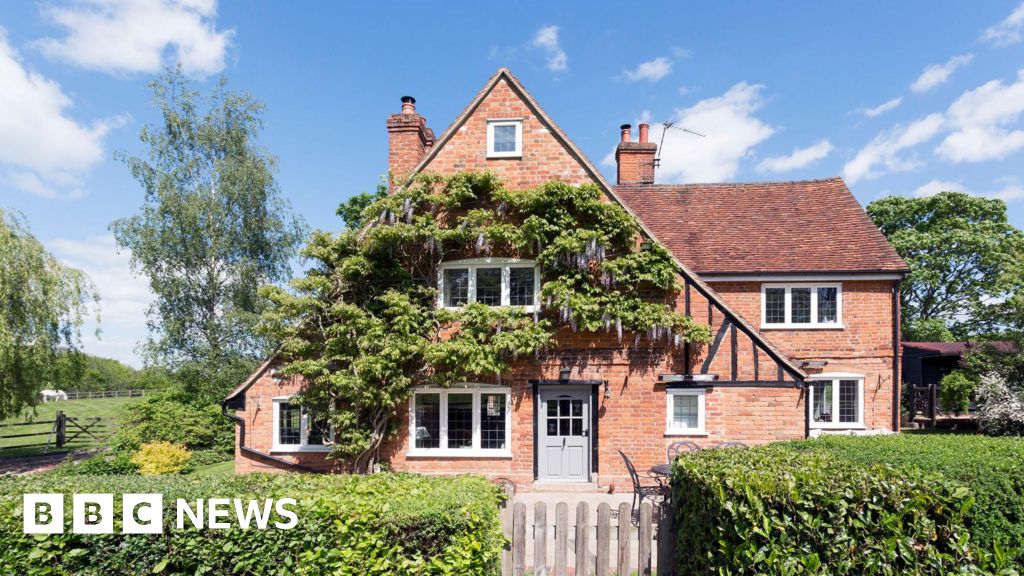Owners of tens of thousands of properties in England valued at more than £2m are set to be hit with a surcharge of at least £2,500 from 2028, in what has been dubbed a mansion tax.
The annual charge will come on top of existing council tax, and will increase depending on the price of a property – with four separate bands.
The lowest band covers properties valued between £2m and £2.5m, while the highest charge of £7,500 will fall on homes valued at £5m or more. The majority of the properties affected are in London.
The Office for Budget Responsibility (OBR) expects the measure to raise about £400m a year by 2029-2030.
The High Value Council Tax Surcharge on properties valued at more than £2m is part of a range of tax rises included in Chancellor Rachel Reeves's Budget to allow her to meet her own self-imposed financial rules.
Announcing the change, the chancellor said she was taking "further steps to deal with a longstanding source of wealth inequality in our country".
However, the change was criticised by the Institute for Fiscal Studies (IFS) think tank for not going far enough.
The IFS has said previously that a revaluation of council tax bands is "long overdue".
Responding to the Budget, the IFS said: "There's a reasonable case for levying more high-value homes, but the design of this tax leaves much to be desired."
The Treasury says it expects the measure to apply to fewer than 1% of properties in England.
Reacting to the announcement, estate agent Savills said it was "probably the least worst outcome for owners of prime property".
It said the impact on the housing market would be "much less severe" than if an "open-ended mansion tax" had been introduced.
Savills said certainty over the issue was now likely to prompt an uptick in the housing market, and over the longer term act as an incentive for older home owners to downsize.
The Local Government Association urged the government to work with regional councils to address "practical concerns about how it would work".
Cllr Pete Marland, the chair of the association's resources committee, said any additional funding raised through council tax should be given to local authorities, adding that "we wait to see how government intends to use this funding to specifically support local services."
"Council tax needs comprehensive, fair reform and local government is ready to work with government on this," he said.
"This surcharge should not create confusion over accountability, with councils likely to be blamed for a charge that is not theirs."
While the charge is imposed on top of existing council tax, the money will go to the Treasury rather than the local authority.
In its assessment of the tax, the OBR said it expected the tax would begin to be reflected in the price of properties, with "price bunching to just below each band boundary".
This refers to the incentive to value a property just below the price at which it would become liable for the charge – something which "reduces the estimated yield by reducing the number of properties in scope of the measure".
The band at which properties will become liable for the charge will increase in line with inflation.
In its assessment, the OBR said the costings for the new surcharge had a "high" degree of uncertainty.
The government will now hold a consultation on what reliefs and exemptions will be put in place – including for things like people who have to live in a high-value property as a result of their job.
Properties will be assessed based on 2026 valuations provided by the government's Valuations Office Agency.
While council tax bands are not going to change, the government will look at properties in the three highest bands of F, G, and H to see if they are valued above £2m.
There have been calls for a full reform of the council tax system as it is currently based on the values of properties in 1991.
A consumer council says access to the UK pension was "ridiculously cheap".
The chancellor's Budget contained a slew of measures which will impact young people specifically.
People in Kent are both welcoming and worrying over the government's latest spending and tax plans.
BBC News hears from people with a range of incomes about what they think of the Budget.
All new cars must be electric or hybrid from 2030, but the government could put new taxes on them.
Copyright 2025 BBC. All rights reserved. The BBC is not responsible for the content of external sites. Read about our approach to external linking.












